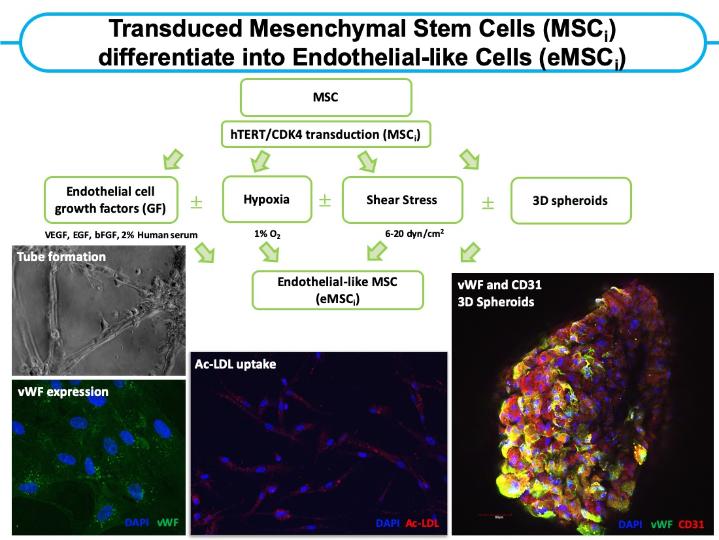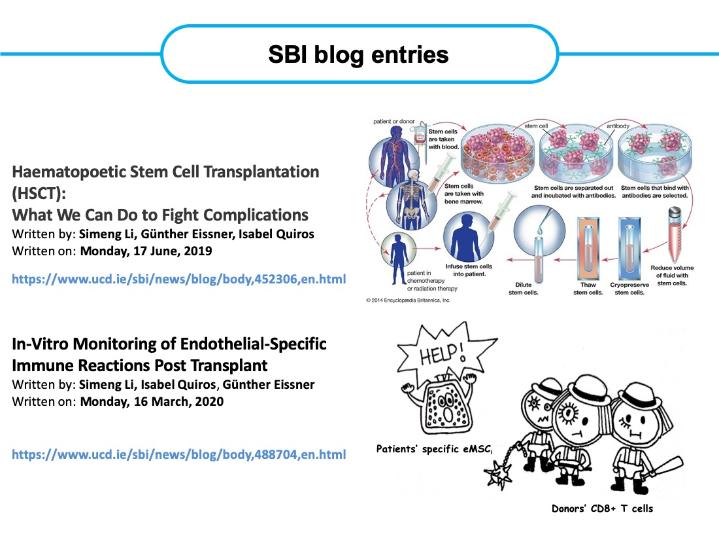About the Group
What We Do
The Eissner Group's major research focus is on endothelial and mesenchymal stem cells in transplant medicine and oncology, i.e. the monitoring and preventing endothelial-specific adverse immunological reactions in transplant settings and the development of new tumour-specific anti-angiogenic strategies in cancer. They aim to develop an individualised, risk-adapted approach to endothelial targeted protection in the course of allogeneic transplantation.

Among other projects Guenther Eissner’s group was funded by the National Children’s Research Centre (NCRC, grant code A/18/4), a collaborative project together with Professor Owen Smith (Our Lady’s Children’s Hospital, Crumlin, Dublin, and SBI/UCD)
Title of the project: The in-vitro risk stratification of endothelial-specific immune reactions post allogeneic haematopoietic stem cell transplantation
Summary of the project: Bone marrow transplant is the only curative option for certain leukaemias and other hereditary disorders many of which can be fatal in childhood. Endothelial damage plays a role in transplant related complications, such as veno-occlusive disease of the liver and graft versus host disease. Damage to the endothelium ensues from toxicity of the conditioning chemoradiotherapy and alloreactivity of donor lymphocytes, a subset of which are specific to the vasculature. We aim to develop an individualised, risk-adapted approach to endothelial targeted protection in the course of allogeneic transplantation. To this end we will generate a patient-specific endothelial cell source by the differentiation of mesenchymal stem cells.





G. Eissner's group is also partnering in a recently launched Horizon Europe project on COVID-19 (see figure below, total budget €10 Million, SBI Share €400,000). In collaboration with SBI’s Dr. Vadim Zhernovkov, they are investigating the role of the endothelium-protective drug FX06 against activation and damage of pulmonary endothelial cells by SARS-CoV-2-induced cytokines with dry and wet lab techniques. The group will be reinforced with a wet lab PhD student, a Research Assistant, and a dry lab Postdoctoral Fellow.

* * * * *
The Eissner Group is a member of the SPRINT COST action. The International Network for Translating Research on Perinatal Derivatives into Therapeutic Approaches - SPRINT is a COST (Cooperation in Science and Technology) project that allows excellent researchers and clinicians in the field of innovation to cooperate and jointly develop their ideas in scientific and technology sectors. Click (opens in a new window)here for more information.
The Eissner Group is also part of the EUROGRAFT - Integrated European Network on Chronic Graft Versus Host Disease (cGvHD) programme, another COST action of the European Commission. Details can be found here: (opens in a new window)https://gvhd.eu.
* * * * *







